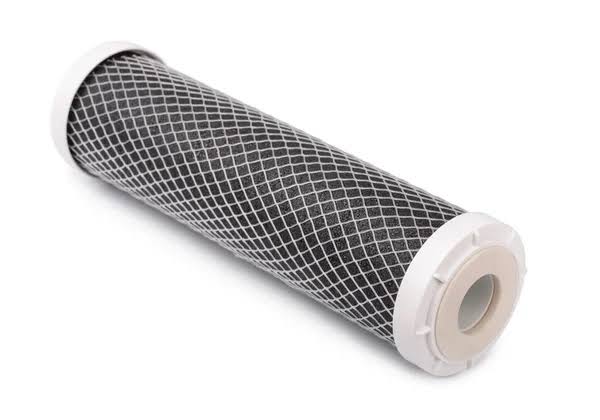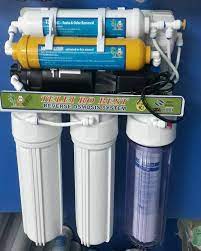In recent years, concerns about microplastics, tiny plastic particles measuring less than 5 millimeters in size, have reached new heights. Found in oceans, rivers, air, and even drinking water, microplastics pose potential health risks due to their widespread contamination. As people become more aware of these risks, many are turning to water filtration systems, including refrigerator water filters, to clean their drinking water. But the question remains: How effective are these filters at removing microplastics?
What Are Microplastics?

Microplastics originate from the breakdown of larger plastic waste, such as bottles, bags, and synthetic fibers. Over time, environmental exposure leads to the fragmentation of these plastics into microscopic particles, which then contaminate various ecosystems, including water sources. The persistence and ubiquity of microplastics raise significant environmental and health concerns, with studies suggesting that they may pose risks to humans when ingested.
Water is one of the primary mediums through which people are exposed to microplastics. As a result, removing these particles from drinking water is critical in minimizing their potential impact.
Refrigerator Water Filters: How Do They Work?
Refrigerator water filters are designed to improve the taste and quality of water by removing contaminants such as chlorine, sediment, and heavy metals. These filters typically use activated carbon, reverse osmosis, or a combination of other filtration methods to trap and remove impurities. Most modern refrigerator water filters are certified to meet NSF/ANSI standards for various contaminants, ensuring the water is free of harmful substances like lead, chlorine, and pesticides.
However, while these filters do an excellent job of removing many common impurities, their effectiveness in eliminating microplastics remains a question of concern.
Can Refrigerator Water Filters Remove Microplastics?
The ability of refrigerator water filters to remove microplastics largely depends on the type of filter and the size of the microplastic particles. Microplastics can range in size from a few micrometers to several millimeters, which means that not all of them may be filtered out effectively by standard refrigerator filters.
1. Activated Carbon Filters

Many refrigerator water filters use activated carbon, which is highly effective at absorbing organic chemicals, chlorine, and some heavy metals. However, activated carbon’s ability to remove microplastics is limited. While the carbon material may trap larger plastic particles, it may not be as effective for tiny microplastic fibers or particles, which can pass through the pores of the filter. The size and structure of microplastics make them harder to capture, meaning that some particles may still slip through the filtration process.
2. Reverse Osmosis Filters

Reverse osmosis (RO) filters, which are found in some advanced refrigerator filtration systems, use a semi-permeable membrane to remove a wide range of contaminants, including bacteria, viruses, and heavy metals. These filters have much smaller pore sizes, typically in the range of 0.0001 microns, which makes them highly effective at blocking tiny particles like microplastics.
Studies have shown that reverse osmosis systems can significantly reduce microplastic content in water. This type of filtration is better suited for trapping small microplastics compared to activated carbon alone. However, it’s important to note that reverse osmosis systems are typically more expensive and may require additional maintenance, such as membrane replacement, to ensure optimal performance.
How Effective Are Refrigerator Water Filters at Removing Microplastics?
While refrigerator water filters can remove some contaminants from drinking water, their ability to eliminate microplastics depends on the specific filtration technology used. Filters with activated carbon are generally less effective at removing microplastics, especially very small particles. Reverse osmosis filters, however, are much more successful in reducing microplastic levels due to their fine filtration capacity.
That being said, current research on this subject is still developing, and there’s no definitive answer as to how well these filters perform under everyday conditions. For individuals concerned about microplastic contamination in their drinking water, reverse osmosis systems or specialized filters designed specifically for microplastic removal might offer a more reliable solution.
Additional Considerations
Aside from the type of filter used, other factors can affect the efficiency of water filtration systems, such as the water pressure, temperature, and filter maintenance. It’s also essential to follow manufacturer recommendations regarding filter replacement to maintain optimal performance.
For those looking to further reduce their exposure to microplastics, using a multi-stage filtration system or investing in a standalone microplastic filter might provide additional peace of mind.
Conclusion
Refrigerator water filters can provide some level of protection against water contaminants, but their effectiveness in removing microplastics is limited, particularly with activated carbon filters. While reverse osmosis systems show greater promise in filtering out microplastics, additional research and advancements in filtration technology are needed to ensure that consumers can effectively protect themselves from these pervasive environmental pollutants.
As concerns about microplastics continue to grow, individuals should be proactive about choosing the right filtration system for their needs. If microplastic contamination is a significant concern, it’s advisable to explore advanced filtration options designed specifically for removing these tiny particles, ensuring clean and safe drinking water for you and your family.

Leave a Reply